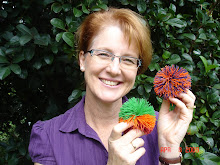PART ONE
Rules, rules, rules! Rules are an essential element to the smooth function of any community. Every school and class group will always have a underlying set of rules but will you, as the supply teacher, be aware of the specific rules and the common language of each individual group's rules?
Most often the answer will be no.
Certainly when you work in one school community often, you do become familiar with school rules. Perhaps you will be lucky enough to be part of that school's in-services or staff meetings. Your on-going professional growth is your responsibility. Principals will always be happy to include you if you show the professional interest by asking.
More often than not, you may be in a situation where your specific school knowledge is not as strong as you would like. To be honest, you have so much new information to process every day; you must be able to respond quickly. This is another reason that this type of teaching is not for the faint hearted!
After some time and personal reflection, I have developed a set of six rules that I like to call my Six Random Rules. (The reason will become apparent for the use of the word random!) Here are the first three......

- ONE PERSON SPEAKING, EVERYONE LISTENING.
- KIND WORDS & MANNER WORDS.
- TRYING MY BEST.
The use of the symbol rule is visual, simple and clear. I have found the complete set ( next three in the following blog) to fit into any school community rules. At the same time, I feel very competent and professional in any situation, as the symbols and their uses are familiar to me.....
- At the beginning of a school day, I outline my expectations for the day with my six random rules as drawn visual symbols on the board.
- I explain to the class that these are the behaviours I will reward. When I see or hear a student following the rule I will randomly reward that student. You never know when you will be chosen.....hence random! Children today have a good sense of what random means. They are usually intrigued and therefore, quite engaged with the idea of a random rule!
- When I choose to reward a child for doing the right behaviour, I ask them to record their name on the board under the rule they were following...... which is a reward in itself.
- I reward all the children who have their names on the board at the conclusion of each session before the break.
- Names are erased at the end of each session and all class members have an equal chance to be rewarded during the next session. (Over the years I have found this strategy to be a positive way to encourage all students to never give up trying. Each session in the day presents as a brand new opportunity for success.)
- Students usually want to make the right choices. This teaching strategy makes it perfectly clear what it is you are looking for. The visual cues are a reminder all day. If the principal happens to pop in to see how you are going, what better way to let him/her know by explaining the strategy and at the same time affirming the students whose names are on the board!
- The other very positive side to this strategy is that I rarely acknowledge negative or attention seeking behaviour. If a child is speaking when another child is speaking to the class group, I simply acknowledge a student who is demonstrating good listening behaviour. I might even go as far as to affirm why I knew that child was listening eg. I really liked the way you were looking right at the speaker when they were speaking. Watch the other children all adjust their behaviour as well after the explicit tip for good listening skills.
I trust this might be a additional strategy you might choose to use. I am away from home at the moment, however, I will try to add the part 2 as soon as I can get to a computer! Meanwhile, love to hear any strategies you have found really supportive to behaviour management in any area of the primary school.
Live, laugh and learn!
Blessings for the journey......
Carmel

Nice post and it is very useful for the students and all person.In school everyone should need to follow some rules and regulation.IB Schools in India
ReplyDelete